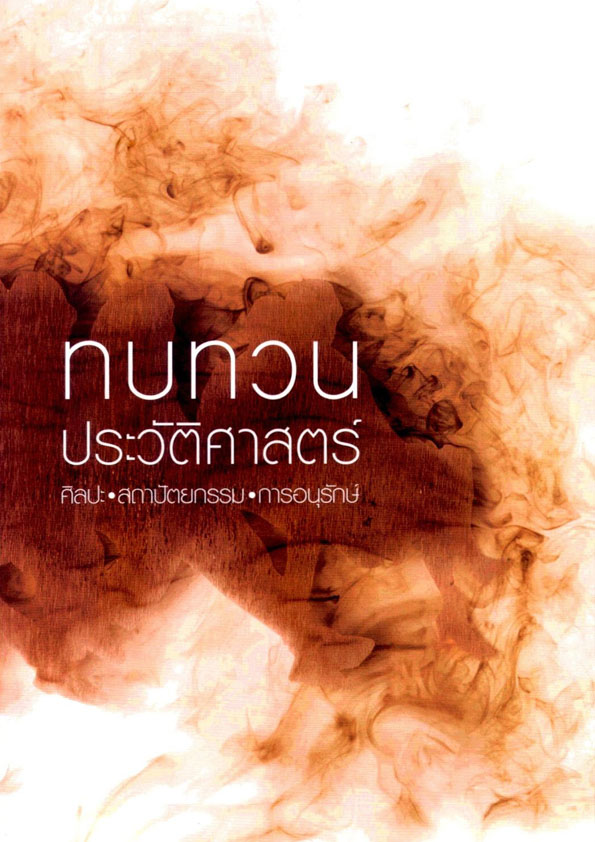จริยศาสตร์ของพื้นที่ Ethics of Space
Main Article Content
Abstract
บทคัดย่อ
การเปลี่ยนย้ายกระบวนทัศน์ทางวิทยาศาสตร์และสังคมศาสตร์ในช่วงคริสต์ศตวรรษที่ 20 นำมาซึ่งความเปลี่ยนแปลงทัศนะที่มีต่อ พื้นที่ (space) อย่างลึกซึ้ง ในมุมมองแบบหลังสมัยใหม่ (post-modernism) พื้นที่มิได้เป็นเพียงปริมณฑลอันว่างเปล่าและหยุดนิ่งที่รองรับปรากฏการณ์ทางสังคม แต่เป็นตัวกำหนดปรากฏการณ์สังคม โต้ตอบกับปรากฏการณ์สังคม และยังเป็นตัวปรากฏการณ์สังคมเองด้วย พื้นที่ การใช้สอยพื้นที่ และวิธีจัดการพื้นที่ เกี่ยวโยงกับระบบคุณค่า หรือจริยธรรมของสังคมอย่างแยกไม่ออก เหตุที่ทัศนะต่อพื้นที่ในยุคก่อนสมัยใหม่แตกต่างไปจากทัศนะต่อพื้นที่ในยุคสมัยใหม่เป็นอันมากก็เพราะระบบคุณค่าที่แฝงฝังอยู่ในความคิดเรื่องพื้นที่นี่เอง ก่อนที่ลัทธิสมัยใหม่นิยมจะเข้าครอบงำกระแสคิดหลักของทั้งโลก ทัศนะต่อพื้นที่มีความหลากหลายมากมายแทบจะเท่ากับจำนวนสังคมวัฒนธรรมที่มีอยู่ในโลก ความแตกต่างหลากหลายดังกล่าวค่อยๆ หมดไปทุกที พร้อมๆ กับการรุกคืบของกระบวนการทำให้ทันสมัย (modernisation) เข้ายึดครองทุกมิติของสังคม และขับไสให้ระบบคิด ระบบคุณค่าท้องถิ่นเลื่อนย้ายไปอยู่ชายขอบ บทความนี้ คือการสำรวจความคิดเรื่อง พื้นที่ในทัศนะก่อนสมัยใหม่ของไทย และระบบคุณค่าที่เป็นรากฐานของความคิดนั้น สิ่งสำคัญที่บทความต้องการนำเสนอคือ ภาพความแตกต่างของการใช้สอยและการจัดการพื้นที่ ระหว่างพื้นที่ในคติแบบไทยและพื้นที่ในคติแบบสมัยใหม่ซึ่งมีที่มาจากความแตกต่างกันของระบบคุณค่าเป็นมูลฐาน การใช้สอยและการจัดการพื้นที่ที่แตกต่างย่อมนำมาซึ่งผลกระทบต่อผู้คนและสิ่งแวดล้อมที่แตกต่างด้วยเช่นกัน ความเข้าใจในเรื่องนี้เป็นหนทางหนึ่งในการอธิบายปัญหาแห่งยุคสมัยที่เกี่ยวข้องกับความสัมพันธ์ระหว่างคนกับคน และคนกับสิ่งแวดล้อม ทั้งสิ่งแวดล้อมในธรรมชาติ และสิ่งแวดล้อมที่มนุษย์สร้างขึ้น
Abstract
The shift of paradigm in natural science and social science during the twentieth century has led to a profound change in the perception of space. In the post-modernist’s view, space has no longer been seen as an empty and static entity where social phenomena appear on, but it is a determinant of phenomena, interacts with phenomena and being phenomena itself. Space, the use of space and the organization of space are intrinsically related to the value system of ethics of a society. The reason why the perception of space in pre-modern period is largely different from that in the modern era is concerned with the significant differences in ethics embedded in the respective perceptions. Prior to the time when modernism has conquered the world, space was diversely perceived. But the diversity has progressively diminished over time as the modernisation process has advanced by marginalizing local values. The paper examines the pre-modern perception of space in Thai culture and the value attached. It shows how the use and organization of space vary according to the differences in perceptions and values and how this affects people and their environs. An understanding on the issue provides us an explanation of contemporary problem concerning the relationship among human and that between human and the built and natural environment.

